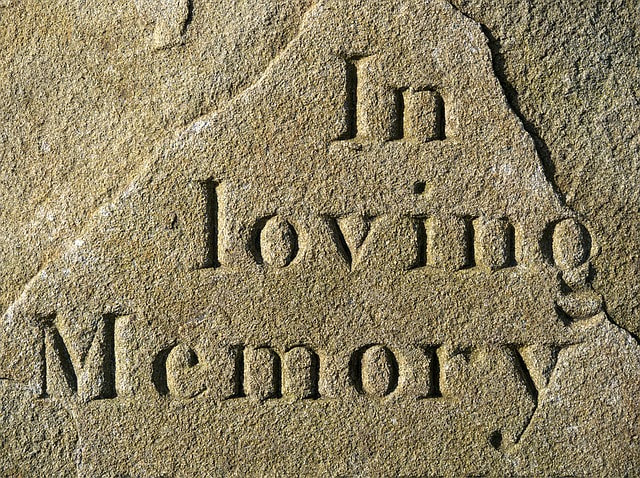|
By: Stephanie Gordon EPLA Editor In the core value series, the editors of Hope Blooms seek to show the heart of the EPLA by describing our core values. We encourage you to remember the children we’ve lost and stand with families suffering from miscarriage. Grieving Together When I experienced my miscarriage nearly eight years ago, I felt like I was the only one who had gone through this tragic event. None of my friends had experienced miscarriage, nor had I ever talked about miscarriage because I didn’t have a reason to. I wasn’t sure where to turn, even though I was surrounded by love. Those closest to me showed support, but I still felt alone. One of our core values is grieving together. Pregnancy loss carries a stereotype of being a personal, quiet event. Even though everyone grieves differently, many women struggle to process their emotions during pregnancy loss. Some find comfort in grieving privately, while others prefer to grieve publicly. Either way, women and families deserve a safe environment to process their grief. Here at the EPLA, we acknowledge the unfortunate frequency of early pregnancy loss and recognize it as a death. We are here to provide a space to grieve. Years after my miscarriage, the EPLA was formed. I wanted to get involved right away, because I remember those many months of grieving alone, even though my husband, family, and friends were there for me. The EPLA was an outlet that allowed me to connect with other mothers who had experienced what I had. We are here to offer emotional and physical support with educational care kits, miscarriage care kits, care provider networking, and community education. We are here to share your stories on our blog and social media pages to help bring awareness to pregnancy loss and to honor your babies who were lost too soon. Every year we hold a tulip fundraiser to help remember the babies who were lost, one way we grieve alongside you. We are here to help bear the burden of grief because you are not alone. Later this week, I will share a tragic loss story from a local mother who experienced loss more than 20 years ago. This was a time when pregnancy loss wasn’t really discussed. Her story is powerful, and goes to show that even though it may not feel like it, the stereotype of miscarriage is indeed evolving. Families should no longer feel like they need to grieve alone. Stephanie Gordon is a paleo food enthusiast, wife, full-time SAHM, marketing professional, and blogger.
0 Comments
By: Nick Carrington EPLA Editor In the core value series, the editors of Hope Blooms seek to show the heart of the EPLA by describing our core values. We encourage you to remember the children we’ve lost and stand with families suffering from miscarriage. Loving People In the last post about core values, we discussed bearing burdens by addressing physical and day-to-day needs. But loss families obviously have more than physical needs after a miscarriage: they struggle through emotional turmoil as well. The EPLA also aims to address these emotional needs of loss families by loving them. Loss families often struggle with anger, confusion, frustration, and sorrow, unable to make sense of the tragedy. They feel the weight of losing a child, but the culture around them does not always affirm the magnitude of that loss. This disconnect can cause a hardening of the heart as families try to cope with their grief. At the EPLA, we aspire to come alongside families by affirming their grief and validating their emotions. We understand that suffering families will feel and react differently, and the EPLA tries to meet the varying emotional needs of each one. How Do We Love Others? As individuals, we can love others by listening before we speak, responding empathetically, and showing respect for both the family and their lost child. We should not seek to “fix” the situation as if our words were magic. More often than not, loss families need someone to listen to their pain and cry alongside them. When we speak unwisely without listening, we trivialize the tragedy, twisting the knife a little more. Grieving families may be concerned that others will forget about their miscarried little one, and emotionally, they are uplifted when others remember their son or daughter. In the immediate aftermath of a miscarriage, we can love families by affirming they have lost a child. As time passes, we can re-affirm this truth through gifts of remembrance, asking about the child around difficult seasons, and using the child’s name, if applicable. Loss families have extensive and sometimes intensive emotional needs as they grieve a miscarriage. By being present, listening, and validating the pain of loss parents, we may provide oxygen to a family gasping for air. The EPLA encourages these kinds of responses and asks that we as a culture support the grieving through loving, nurturing, and respectful responses. Nick Carrington is an Editor for the EPLA and Assistant Professor of Professional Writing at Cedarville University.
By: Nick Carrington EPLA Editor In the core value series, the editors of Hope Blooms seek to show the heart of the EPLA by describing our core values. We encourage you to remember the children we’ve lost and stand with families suffering from miscarriage. Bearing Burdens Miscarriage is a traumatic event that affects families physically, emotionally, and spiritually. Research confirms that parents mourn the death of their child in the womb with a similar intensity and duration as they mourn deaths of other loved ones. This pain makes ordinary activities a burden for families. They need to make meals, care for their other children, do house and yard work, and work their jobs. Most loss parents have little to no respite, and the everyday demands of life only deepen the emotional and spiritual turmoil they feel. Many women also do not realize what their physical needs will be during and after a miscarriage. The entire experience is traumatic, including on the body of the mother. They bear a physical weight that is amplified by the pain within them. EPLA Response At the EPLA, we encourage a comprehensive response to the suffering of miscarriage. This response includes miscarriage kits to give mothers the supplies they need to deal with the physical effects of a miscarriage. We have created resource folders to educate suffering families as they try to make sense of the senseless. On our blog, we have suggested ways to encourage loss parents and help them with everyday needs. Bearing burdens will not “fix” the problem or make loss parents’ grief go away. But, hopefully, it will allow them to come up for air and breathe, to keep from sinking deeper into the depths that sometimes swallow us whole when we encounter trauma. Parents need time to work through their grief, and we as an organization and as individuals play a role in the healing. Stand with us as we seek to bear the burdens of suffering parents. They need our help; to carry their load is to offer them hope, and hope goes a long way as we grieve the loss of a child. Nick Carrington is an Editor for the EPLA and Assistant Professor of Professional Writing at Cedarville University.
By: Emily Carrington EPLA Founder and President In the core value series, the editors of Hope Blooms seek to show the heart of the EPLA by describing our core values. We encourage you to remember the children we’ve lost and stand with families suffering from miscarriage. Affirming Life Early pregnancy loss is the loss of a unique and infinitely valuable life often bringing great grief to women and families as they suffer this loss. While it might be hard to perceive the life of an embryo without technology, we affirm that a mother is caring human life at any stage in development from fertilization on. The word miscarriage is often used to describe pregnancy loss in the first 20 weeks of pregnancy. Women who have experienced a second trimester miscarriage might have already felt kicks, started to show, heard a heartbeat, or have seen their little one on an ultrasound. Other women who have experienced a first trimester miscarriage might not have had any evidence of life other than the positive pregnancy test. Every pregnancy loss experience is different. Some women have been longing for a baby; some women are facing an unwanted pregnancy. Some women have suffered multiple miscarriages, some this is their first. Some women have had multiple healthy pregnancies before a miscarriage while others have had multiple miscarriages with no living children. For each of these women, when her pregnancy ended, so did a life. What does this mean? We want to help change the public script to allow space for grief following miscarriage. We believe that affirming life is the first step for giving this space. We must first understand what we are grieving so that we might grieve it properly. This does not mean we all will experience this grief in the same way. Or even must adapt the same rituals and ceremonies to process our grief. Just as we all experience other deaths differently, families will respond differently to miscarriage. Emily Carrington is a freelance writer, wife, mother, and founder of the EPLA.
By: Nick Carrington EPLA Editor After dealing with several miscarriages, Emily Carrington, our president and founder, experienced first-hand the isolation that comes with losing a child in the womb. She had physical, emotional, and spiritual needs and myriad questions that went unanswered. The resources for dealing with this trauma were woefully lacking. Instead of merely repining, she dreamed. Emily dreamed of a culture of comfort for grieving families where miscarried children are celebrated and the sting of medical bills is diminished. She dreamed of a community willing to listen to the laments of the tearful, to hear their stories and bear their burdens. Emily dreamed big. And out of those dreams sprang the Early Pregnancy Loss Association, an organization committed to making sure that no family suffers miscarriage alone. Not all of Emily’s dreams have been realized, but we’ve come a long way by providing educational materials, miscarriage kits, digital space to share stories, and much more. There’s plenty of work to be done, but we have built a foundation on five core values that guide our actions as an organization. These values form the heartbeat of the EPLA; they unite us as we seek to come alongside hurting mothers and families. These values are as follows: Affirming Life Early pregnancy loss is the loss of a unique and infinitely valuable life often bringing great grief to women and families as they suffer this loss. Bearing Burdens Women and families experiencing early pregnancy loss are carrying the weight of death. In isolation, this weight seems too great for one to bear. But together, when we carry one another's burdens, the weight is eased by making room for peace and hope. Loving People Early pregnancy loss brings anger, confusion, frustration, and sorrow. These emotions can lead to both emotional sensitivity and a hardening heart in order to cope with the grief. To meet their unique needs during this time, women and families will be treated in a loving, nurturing, and respectful way. Encouraging Community Together we can do more. To better bear the burdens of women and families, a variety of organizations and professionals can work together to meet these needs. Medical professionals, counselors, churches, and related non-profits all offer unique services to help ease the emotional, psychological, and financial burden of early pregnancy loss. Grieving Together Because of the hushed culture concerning pregnancy loss, many women do not know how to understand their heartache. Everyone grieves differently, and, though common, early pregnancy loss is an intensely personal experience. Whether they choose to grieve publicly or privately, women and families need a safe environment to experience grief. By acknowledging the frequency of early pregnancy loss and recognizing it as a death, families are granted space to grieve. These ideas have many implications, and we have plenty to say about them. So, our editors are going to dive deep into these core values in the coming weeks, discussing what these values mean to us and how we display them as an organization. We believe that the best organizations are guided by a clear desire to do good, and through this series, we hope you see the heart of the EPLA. If you resonate with these values and want to help our clause, feel free to reach out to us. We would love to partner with you in helping bear the burden of grief for women & families who have experienced the heartache of miscarriage. Nick Carrington is an Editor for the EPLA and Assistant Professor of Professional Writing at Cedarville University.
|
Archives
December 2023
Categories
All
|






 RSS Feed
RSS Feed